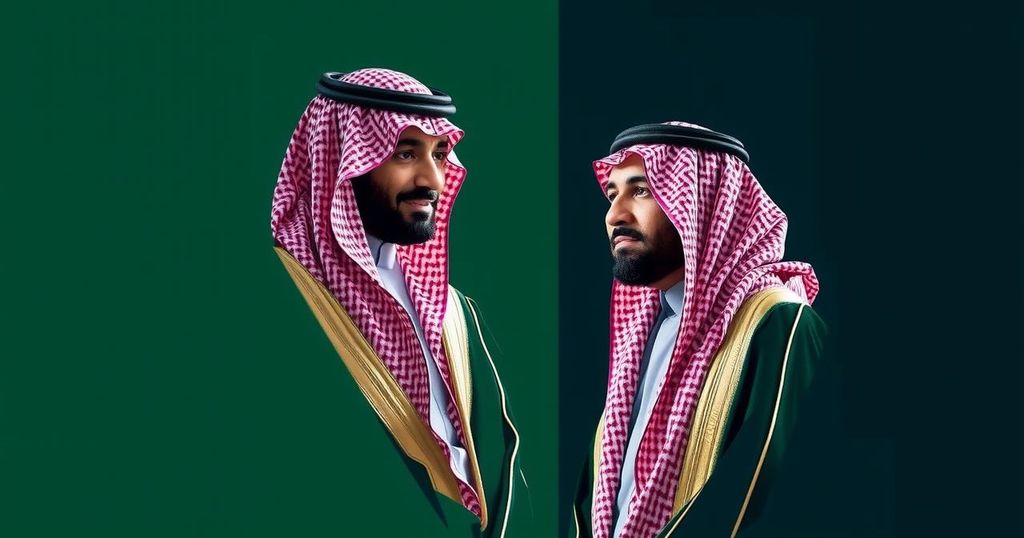Crown Prince Bin Salman’s Involvement in Newcastle United Takeover Revealed by Leaked Messages

Leaked messages indicate that Saudi Crown Prince Mohammed bin Salman was deeply involved in the Newcastle United takeover, raising questions about the independence of the Public Investment Fund. Amanda Staveley relayed concerns regarding his impatience and cited UK government efforts to support the deal amid controversies over Saudi Arabia’s human rights record. Despite this, both Staveley and PIF assert that the Premier League’s assurances regarding governance remain unchallenged.
Leaked WhatsApp exchanges from Amanda Staveley, the former minority co-owner of Newcastle United, indicate that Mohammed bin Salman, the Crown Prince of Saudi Arabia, played a significant role in the club’s acquisition. Staveley, who exited the board after liquidating her shares in July, was instrumental in negotiating the £305 million deal involving Saudi Arabia’s Public Investment Fund (PIF), which was finalized in October 2021 after the Premier League received assurances regarding the independence of the PIF from the Saudi government. The involvement of Bin Salman, who chairs the PIF, has raised concerns, particularly as the Telegraph revealed communications outlining his active engagement. Messages indicated that Staveley warned Mike Ashley’s camp about the Crown Prince’s diminishing patience and noted efforts to dissuade him from withdrawing from the deal. She also referenced discussions between the UK Saudi ambassador and the Crown Prince. Although foreign states are permitted to own Premier League clubs, the Saudi government’s human rights record has generated apprehension. A CIA report highlighted Bin Salman’s role in the assassination of journalist Jamal Khashoggi, a charge he has denied. In the aftermath of the messages being leaked, Staveley clarified through her legal representatives that her mentions of Bin Salman pertained solely to his role as chairman of the PIF, dismissing implications that they undermined the assurances about the fund’s operational independence. The Premier League, in 2021, affirmed that it received “legally binding assurances that the Kingdom of Saudi Arabia will not control Newcastle United Football Club.” Staveley characterized the PIF as an autonomous commercial investment entity. In response to the recent revelations, the PIF reiterated that the conditions that warranted the approval of the Newcastle acquisition remain unchanged. Staveley, who initially owned a 10% stake, witnessed the PIF acquire 85% of the club, with the Reuben Brothers possessing the remaining 15%. Her ambitions for securing involvement with Newcastle were solidified when she met Yasir al-Rumayyan, PIF’s governor and current Newcastle chairman, aboard Bin Salman’s yacht in 2019. Reports have suggested that the UK government exerted significant efforts to enable the Saudi-led takeover.
The takeover of Newcastle United by a consortium led by Saudi Arabia’s Public Investment Fund (PIF) has been a subject of significant scrutiny and debate, especially regarding the involvement of the Saudi government and the Crown Prince. The Premier League required assurances to mitigate concerns over human rights violations associated with the Saudi regime. The complexities surrounding this takeover escalated further when leaked communications from Amanda Staveley surfaced, suggesting deeper involvement of the Crown Prince than previously acknowledged. This issue represents the intersection of sports, politics, and investment, particularly given the backdrop of tense relations regarding human rights and governance.
The leaked messages from Amanda Staveley reveal that Mohammed bin Salman had a prominent role in the negotiation and facilitation of the Newcastle United takeover, thereby igniting discussions about the relationship between the PIF and the Saudi state. While the Premier League received formal assurances regarding the independence of the PIF, the implications raised by these communications warrant continued examination. Despite controversies surrounding the Saudi government’s human rights record, officials from both the PIF and Staveley assert that the integrity of the acquisition process remains intact and that the venture is driven by commercial interests, not political control.
Original Source: www.theguardian.com








